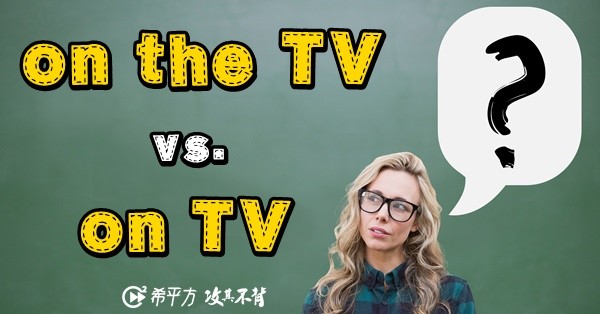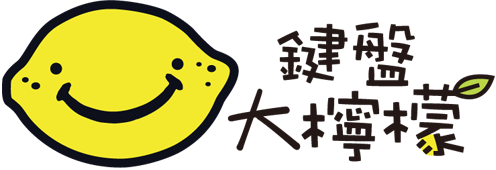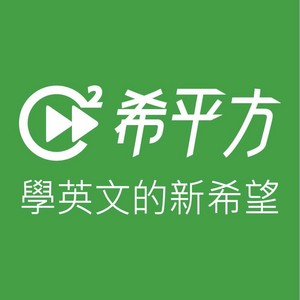常碰到許多學生苦惱地問老師,為什麼有一些片語好像有兄弟姊妹似地,總是長很像,讓人一不小心就眼花看錯,像是這位同學:
老師,我有問題想請教,請問 on TV / on the TV 有什麼差別,是不是其實可以通用啊?
謝謝這位同學的提問,其實呢英文有非常多的片語,其中有一些常常讓你覺得非常相像,時常讓人搞混。例如這位同學說的,有時候在用 on TV,你會猶豫到底應不應該加上定冠詞 the,今天我們就來看看那些好像卻又不一樣的片語,把它們一一攻破吧!

on TV 電視上 / on the TV 電視機上面
沒有加定冠詞 the 的時候,指的是「出現在電視螢幕上」的意思。
例如:Look ! Jessica is on TV now.(你看!Jessica 上電視了。)
如果加上了 the,就變成是指定那一台電視機,這時候就表示位置「在那電視機頂端、上方」的意思喔!
例如:My cat loves to sleep on the TV for the whole afternoon.(我的貓喜歡一整個下午都睡在電視機上面。)
in front of 在...前面 / at the front of 在...前面的位置
例如:There is a cab in front of the bus.(有一輛計程車在公車前面。)
以及:We were sitting at the front of the bus.(我們坐在公車前面的位置。)
有發現到嗎?如果沒有定冠詞 the,表示所處的位置是在某個物體的前方,所以 in front of the bus 是指「在公車前面」;但有加上 the 的話變成是在那個物體「本身前方」的位置,因此 at the front of the bus 表示「在公車內前方的位置(也就是靠近司機的那一頭)」。
look up 查詢 / look up to 尊重
使用 look up 的時候,常表示「在字典裡面查詢」,所以會這樣搭配 look something up in the dictionary。
例如:If you don’t understand a word, you can look it up in the dictionary.(如果你不知道一個字,你可以在字典裡查詢它。)
但是如果加上一個 to 的話,變成 look up to 就不一樣囉,這是表示「尊重、敬佩某人」的意思。
例如:He saved a lot of people from the accident, so everyone looks up to him.(他在那場意外中救了許多人,所以所有人都敬重他。)
pull over 把車開到路邊 / pull out 駛出、駛離
如果介係詞用的是 over,表示「慢慢把車靠邊停」,是一種慢慢停下來的樣子。
例如:The police asked the driver to pull over.(警方要求那名駕駛靠邊停。)
介係詞如果用 out 的話,表示車子「駛離」,也就是說車子是慢慢加速要起步離開了,是不是跟前面說的 pull over 有很大的不同呢?
例如:The bus had already pulled out when we got there.(在我們到那裡之前,公車已經開走了。)
put on 穿上 / put off 拖延
通常 on 跟 off 表示兩個正好相反的概念,但搭配上了同一個動詞 put 之後,兩者可是完全沒關係喔!put on 表示「穿上衣物」;put off 則是「拖延、延遲」。
例如:It’s cold out there. Put on this jacket.(外面很冷。穿上這件外套吧。)
以及:It’s been raining these days. We have to put off the games.(最近都一直下雨。我們必須將比賽延期。)
take off 脫下 / take on 承擔
前面說到表示「穿上」的 put on 其實相反的動作「脫下」要說 take off,不過 take on 並不是「穿上」喔,而是「承擔」的意思。
例如:He took off his coat and gave it to me.(他把他的外套脫下來給我。)
以及:Jerry is in charge of the new project, which means he has a lot of new responsibilities to take on.(Jerry 負責這項新專案,那表示他有許多新責任要承擔。)









